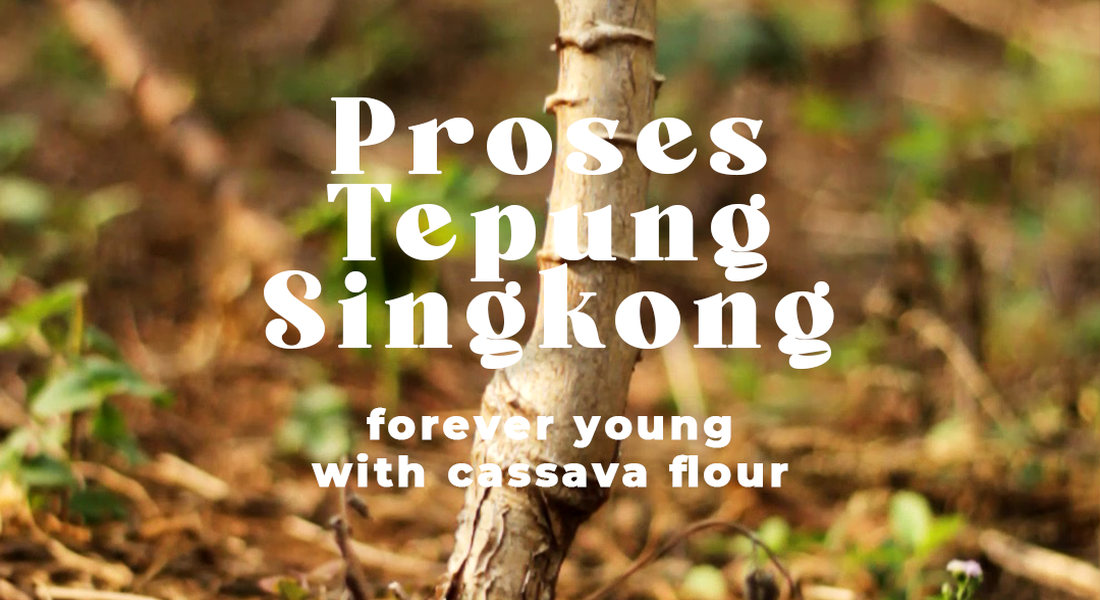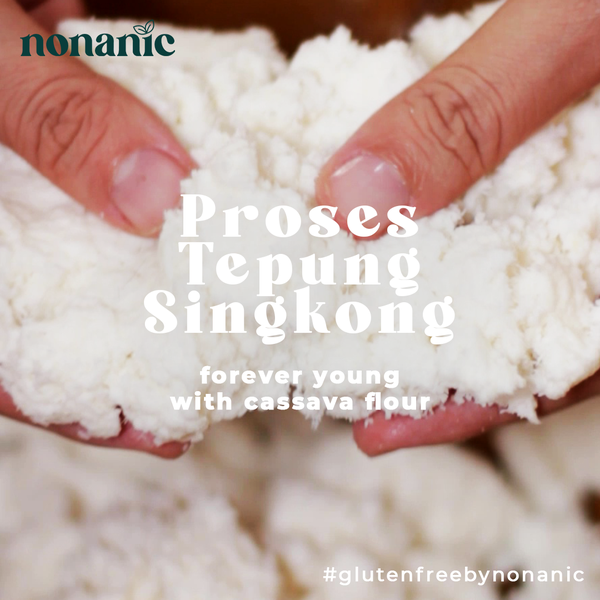When we talk about trending flours, we can’t forget about cassava flour. Yup, this one is really cool, especially when we talk about its origins, which can inspire us to live a healthy and tasty life.
Just recently, I visited and saw firsthand the process of making cassava flour in the traditional village of Cirendeu, Cimahi, West Java. That’s why I want to share with you all about where this cassava flour comes from and why it’s become a popular choice for so many people.
So here’s the thing, before it becomes flour, the main ingredient for cassava flour is, of course, cassava. This cassava grows abundantly in the soil for months, sometimes up to a year, BestNic. After waiting for so long, the cassava is finally ready to be harvested. It seems like the process of growing cassava really requires patience and dedication, but the results are definitely satisfying!
The 6-Step Process of Making Cassava Flour
There are 6 steps in making cassava flour that you need to know, BestNic:
- Peeled
- Washed
- Grated
- Squeezed
- Dried
- Ground
So, after being harvested, the cassava is peeled and cleaned. After being washed, the cassava flesh looks fresh and ready to be processed. What’s interesting about this process is when the cassava is grated. The grated cassava is then squeezed until its thick starch is extracted. But it doesn’t stop there; the squeezed grated cassava is dried for two days until it’s completely dry. After it’s dry, it’s finally ground into flour.
And there you have it, the cassava flour you see now in the packaging at supermarkets or small shops. And as you read above, cassava flour is the result of a long process and the hard work of cassava farmers. But don’t get it wrong—although the process is quite lengthy, the end result makes all the effort worthwhile. 🥰
Besides that, the extracted starch also has its own use, BestNic! The starchy water is left to settle for hours, and the top layer of water is discarded, then the sediment is dried and further processed into tapioca flour. So every part of it gets utilized, right? 🤩
Now, why has cassava flour become so popular?
Gluten-Free
First, cassava flour is gluten-free. So, if you have gluten intolerance or are on a gluten-free diet, cassava flour can be a great alternative.
High in Fiber
Not only that, but cassava flour also has amazing health benefits.
Cassava flour is rich in fiber, which helps keep our digestion running smoothly.
Source of Complex Carbohydrates
Additionally, cassava contains complex carbohydrates that can keep you feeling full longer. So, if you’re trying to reduce your meal portions, cassava flour can be a loyal companion for making alternative carb dishes or snack cakes.
Contains Vitamins and Minerals
Moreover, cassava also has beneficial vitamins and minerals. For example, cassava contains vitamin C, which is good for your immune system. Minerals like magnesium, phosphorus, and calcium are also found in cassava flour, which are important for bone and dental health.
Unique Texture and Neutral Taste
Cassava flour also has a unique texture and neutral taste, making it perfect for a variety of recipes. From getuk, rasi, to sponge cakes, all can be made from cassava flour. You can experiment with different recipes and create delicious dishes without worrying about gluten.
You might be wondering, "Is it really true that cassava flour is healthy?" The answer is yes. 🤩 With all these benefits, cassava flour can be a wise choice for maintaining health. Especially if you’re starting a healthy lifestyle or following a gluten-free diet, cassava flour can be a practical and tasty solution.
So, if you’re looking for natural gluten-free ingredients and want to try something new, don’t hesitate to give cassava flour a try. From the long process and skilled hands that process it, you’ll get a result that’s not only delicious but also nutritious.
So, from now on, if you want to make delicious and healthy gluten-free food, cassava flour can be your go-to choice, BestNic!
By the way… it turns out, just like nurturing a relationship, taking care of cassava also requires attention and effort, but the results are definitely satisfying, right? 😉






